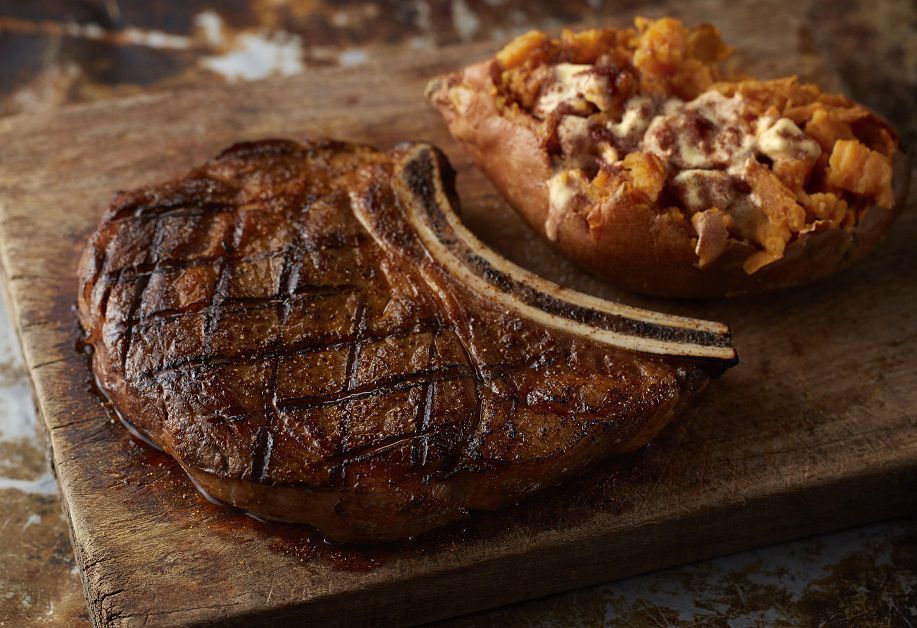
Somewhere, a chef is crying.
Many chefs feel a sort of kinship with the foods they cook. They lovingly season it with salt and pepper, they cook it to perfection, they take the time and effort to make it just right.
And then someone goes ahead and orders his steak well-done.
Actually, it’s a lot of someones.
LongHorn Steakhouse recently shared the details of all of its steak orders for an entire year with the data geeks at FiveThirtyEight. That’s a ton of information — LongHorn boasts 491 locations around the country, including seven in the St. Louis area.
The results were shocking, or at least sad. Sad to chefs.
It turns out that 77 percent of LongHorn patrons who order steak order it cooked to medium or beyond.
Many chefs will tell you that the only way to order beef is to ask for it rare or medium-rare. That way you can taste the juice; it’s tender and delicious. The more a steak is cooked — and there has to be some scientific way of demonstrating this — the more it loses its flavor. And it indisputably becomes tougher.
And yet, according to the survey, a plurality of 37.5 percent of LongHorn patrons order their steaks medium, 25.8 percent order it medium-well and 11.7 percent like their steaks well-done.
With all due respect to my friends (and readers) who like their steak well-done, you’d get the same flavor profile out of a microwaved bomber jacket.
Lindsey Curtit, managing partner of the LongHorn Steakhouse in O’Fallon, Mo., is happy to have her customers ordering their steak any way they like it.
“There really is no wrong way to cook a steak. It’s really just the guest’s preference,” she said.
Curtit, who likes her steaks cooked medium, said that, based on her casual observation, her customers at the O’Fallon location order their steaks in about the same proportion as the national numbers.
Curtit also pointed out that not all steak is the same. The different types of fiber in different cuts of meat mean that some cuts can stand up to more cooking than others. The ribeye, for instance, can take the heat better than other cuts because of all of its marbled fat. The same is true of the porterhouse and its cousin, the T-bone.
The pertinent question is: Why do people like their steaks the way they like them?
I find I get maximum beefy flavor, without the meat being too chewy, out of steaks cooked on the rare side of medium rare. Though I have no evidence to back it up, my guess is that people who like their steaks medium-well or well done prefer them that way because they are (or were, as children) a little grossed out at seeing juice run out of their meat.
The numbers in the latest data seem to contradict the information gathered just three years ago by FiveThirtyEight. At that time, a survey of 432 steak-eating Americans indicated that 43 percent of us like our steaks cooked to rare or medium-rare.
The plurality of that group, 38 percent, said they like steak cooked medium-rare. A significant number behind, 31 percent, said they like it cooked medium.
The folks at FiveThirtyEight looked at the disparity between these two studies and suggested that people have heard they are supposed to like their steaks rare or medium rare, so that’s what they say when they are asked how they like it. But in reality — when they order at a restaurant — they ask for it medium or above.
But I have a different possibility. LongHorn is a national chain, with locations often (though by no means always) on expressway interchanges. It caters to travelers and families. With a ribeye going for $20.49 and a porterhouse topping out at $28.49, it is a solid and popular restaurant.
But maybe travelers and families are more likely to want their meat cooked longer than couples, singles or people staying closer to home.
Curtit doesn’t think so. “Our vision is to become America’s favorite steakhouse, so America is our target market,” she said. “I would say our guests do represent the country as a whole.”














